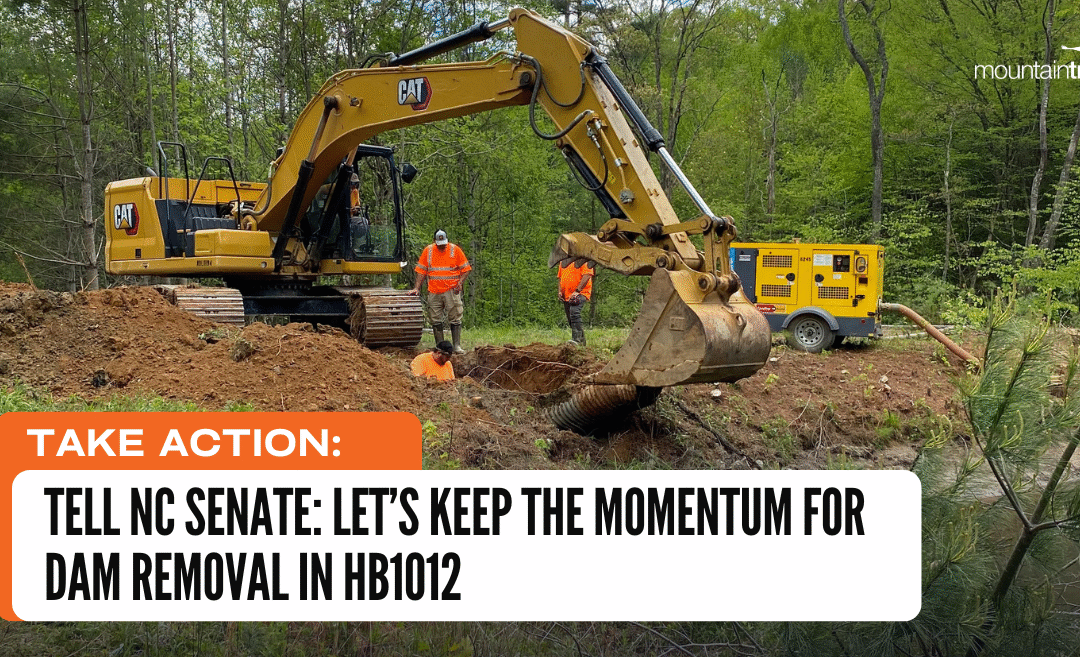
MT Raleigh Report: NC General Assembly Wraps Up for Summer – With Key Wins for WNC Disaster Recovery
MT Raleigh Report: NC General Assembly Wraps Up for Summer – With Key Wins for WNC Disaster Recovery
June 30, 2025
Last week, the North Carolina General Assembly wrapped up what is expected to be the bulk of its work for the 2025 legislative session — with one major exception. Here’s a look at what lawmakers accomplished, what remains unresolved, and how MountainTrue’s advocacy made a difference for Western North Carolina and the ongoing recovery from Hurricane Helene.
Progress on Disaster Recovery for WNC
Despite failing to pass a full state budget (more on that below), House and Senate leaders came together at the last minute to approve nearly $500 million in disaster relief funding — including several items MountainTrue directly advocated for and supported:
- $10 million to repair, modify, or remove dams damaged by Hurricane Helene
- $3 million for landslide hazard mapping in Western North Carolina
- $15 million for the NC Forest Service to strengthen wildfire preparedness, including equipment and contract services
- $16 million for the Town of Canton, including:
- $2 million in emergency operating support to maintain wastewater treatment services
- $14 million for acquisition and development of a new regional wastewater treatment facility outside the floodplain — a major step forward for long-term resilience and environmental protection
These critical investments represent real progress for our region and reflect the strength of your support and our collective advocacy efforts.
Budget Impasse Continues
Unfortunately, the General Assembly adjourned without approving a new state budget. At the heart of the deadlock: a bitter standoff between House and Senate Republicans over tax policy.
- House Republicans want to freeze previously approved tax cuts that are just now taking effect, citing warnings from nonpartisan economists about future budget shortfalls.
- Senate Republicans dismiss those concerns and are pushing to accelerate the cuts.
Until this impasse is resolved, negotiations over the rest of the $32 billion state budget — including funding for schools, healthcare, infrastructure, and environmental protection — remain on hold.
What’s Next
The legislature is expected to take most of the summer off, returning sporadically until one side gives ground. In the meantime, MountainTrue’s advocacy team will be ready, continuing to push for smart investments and policies that protect our rivers, forests, and mountain communities.
We couldn’t do this work without you — thank you for standing with us.




